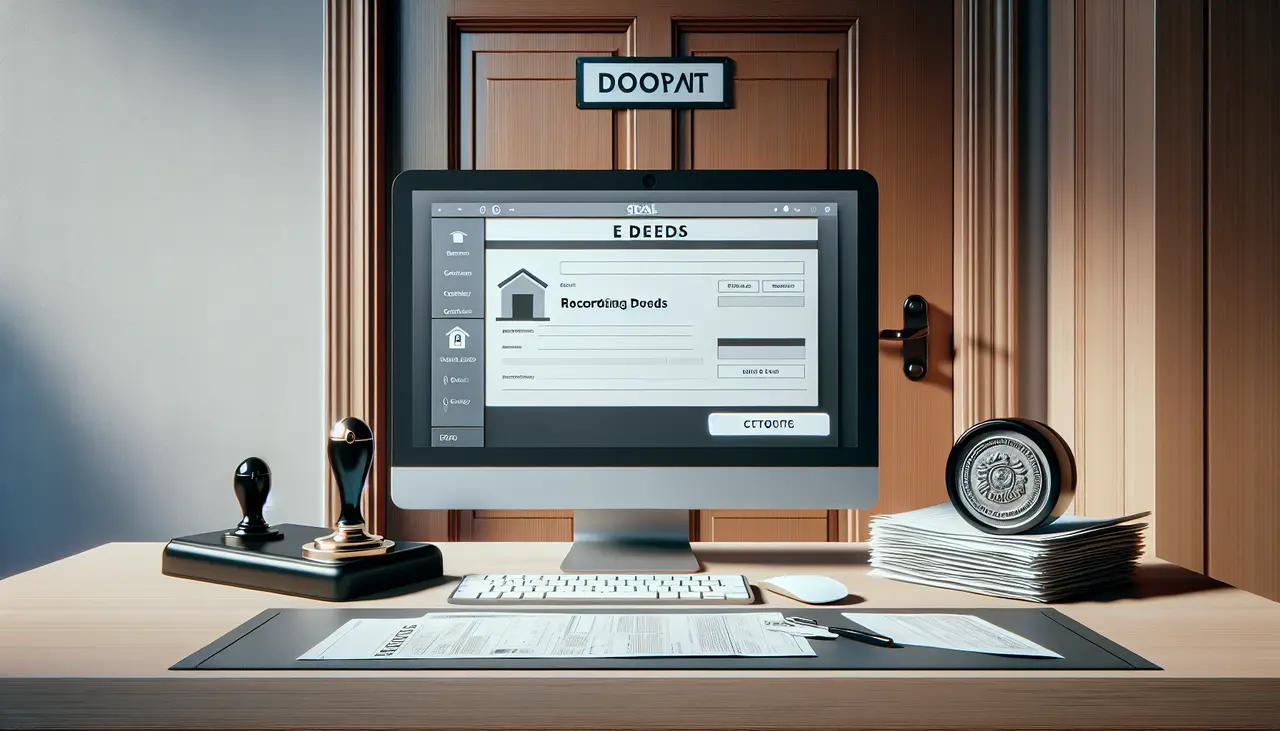In the fast-paced world of real estate, staying updated with the latest technological advancements can make a significant difference. One such advancement is the electronic recording of deeds. This process could seem a bit overwhelming at first, but by understanding its benefits, you’ll soon see why it’s a smart step forward.
What is Electronic Deed Recording?
Electronic deed recording, often known as e-recording, is the process of creating, signing, and submitting real estate documents in a digital format. This method replaces traditional paper-based recordings and offers numerous efficiencies. By digitizing the process, real estate transactions can be completed with unprecedented speed and accuracy, allowing both parties to focus on other critical aspects of property acquisition or sale.
The transition from traditional to electronic recording is akin to moving from horse-drawn carriages to automobiles. Just as vehicles sped up travel and made it more reliable, e-recording quickens the pace of transferring property rights, reduces paper waste, and aligns with modern eco-friendly initiatives.
Benefits of E-Recording
E-recording real estate deeds provides several advantages, including faster processing times, reduction in errors, cost savings, and enhanced document security. By minimizing the need for physical document deliveries, this system reduces the risk of loss, theft, or damage. For instance, the Wake County Register of Deeds has highlighted how e-recording continues to streamline the process, benefiting both customers and taxpayers.
Another significant advantage is the immediacy of e-recording. Once the deed is signed, it can be recorded electronically almost instantaneously, ensuring that property ownership is transferred promptly, which is crucial in competitive markets. This speed and efficiency are particularly beneficial in areas with high real estate activity, where delays can result in lost opportunities.
E-recording also provides financial benefits. With reduced need for courier services and less reliance on physical storage, costs are lower. These savings are often passed on to clients, making real estate transactions more economical. Gentile Property Law Office embraces these benefits fully, recognizing the transformation e-recording brings to the industry.
How Secure is Electronic Recording?
Security is a common concern with digital processes. Fortunately, e-recording systems use advanced encryption and authentication techniques to ensure the safety and integrity of recorded deeds. This makes digital records less susceptible to tampering compared to physical documents, which can be lost or damaged. The use of digital signatures also ensures the authenticity of documents, providing peace of mind for all parties involved in a transaction.
Moreover, the digital trail created during e-recording offers transparency, allowing parties to track the recording process in real time. This level of oversight is unparalleled in traditional methods, where document status can remain ambiguous until physical copies return from the recorder’s office. Therefore, e-recording isn’t just secure—it enhances trust by improving visibility and accountability.
Steps to Start E-Recording
To start e-recording, you’ll need to partner with an authorized e-recording service provider, ensure your documents meet the necessary requirements, and have them submitted electronically to the county recorder’s office. Choosing a reliable service provider is crucial, as they will guide you through each step of the process, ensuring compliance with local regulations and facilitating a smooth transition from traditional recording.
At Gentile Property Law Office, we leverage our expertise in electronic recording to assist our clients in navigating this modern advancement. Our comprehensive services include document preparation, verification, and swift submission, ensuring that your real estate transactions are completed efficiently and securely.
Embrace the Future with Electronic Recording
Embracing the electronic recording of deeds in real estate offers numerous benefits, from saving time and costs to enhancing security and accessibility. As technology continues to evolve, digital processes like this will become increasingly vital in maintaining efficient and effective real estate transactions. To explore more about how electronic deed recording can transform your property transactions, visit our comprehensive blogs.




0 Comments